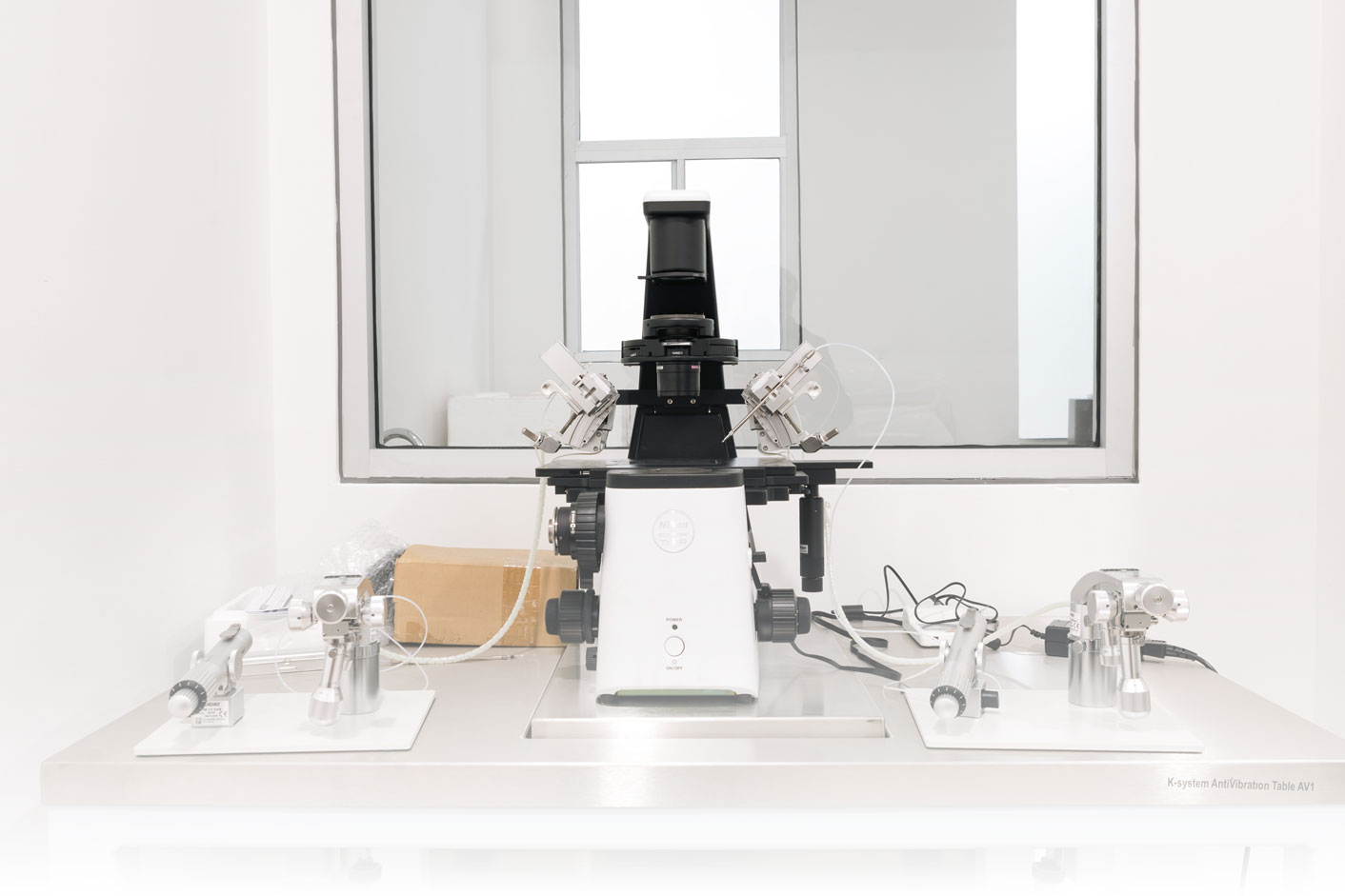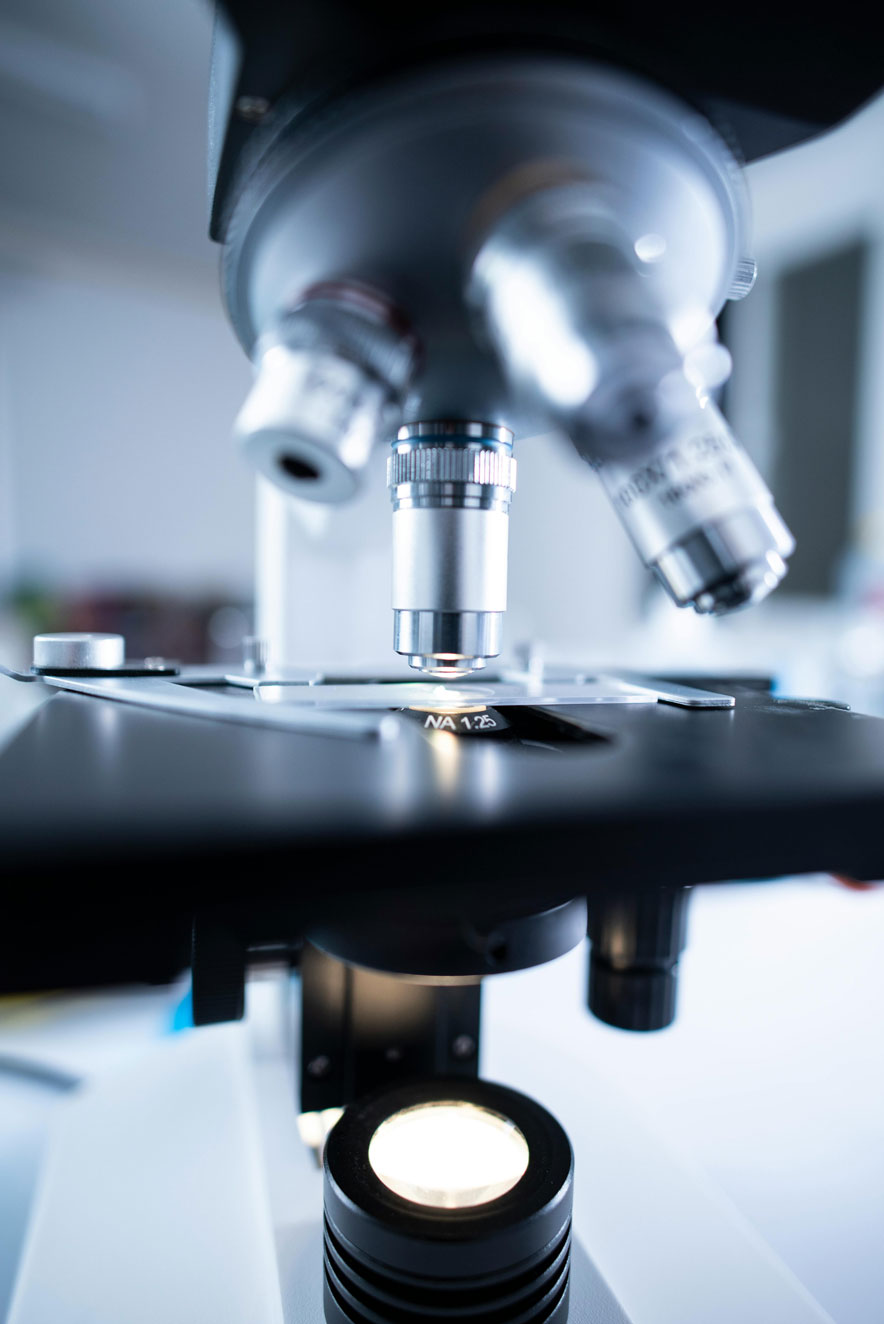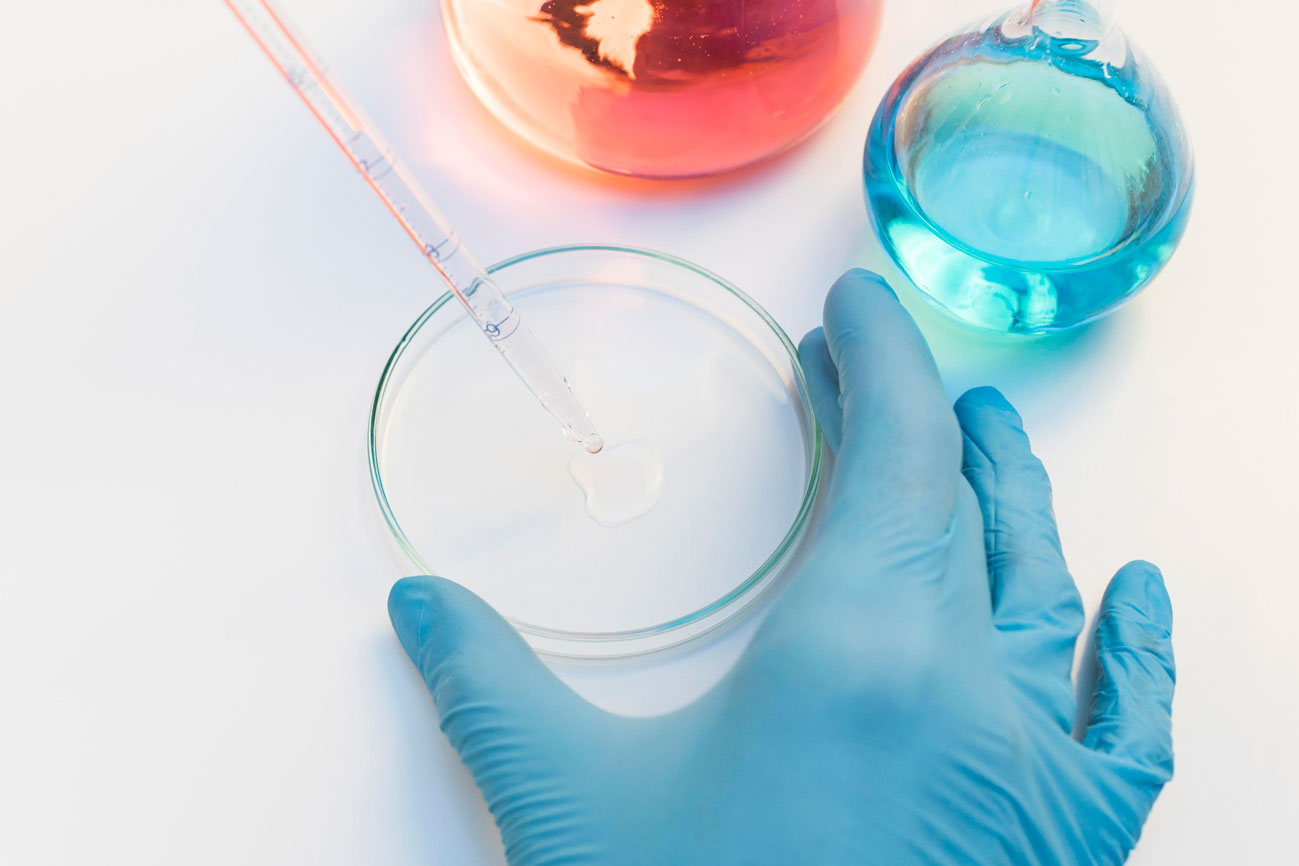BAJA FERTILITY SERVICIES
Andrology
Laboratory
About
Andrology Laboratory
At Baja Fertility Services, we offer an advanced andrology laboratory where we conduct comprehensive semen analyses to assess male reproductive health and guide the most appropriate treatment.

What is a Semen Analysis?
Semen analysis is a comprehensive study that examines both the macroscopic and microscopic characteristics of semen. This test allows us to determine sperm quality and reproductive potential, aiding in the diagnosis and treatment of male fertility issues.
Sample Collection Process
The semen sample must be obtained through masturbation and deposited into a sterile container with a lid. It is essential to follow specific instructions to ensure the quality of the sample.
Microscopic Analysis
• Sperm Count: Determines the number of sperm present in the sample.
• Sperm Motility: Assesses the percentage of motile sperm and their ability to move properly.
• Sperm Morphology: Evaluates the shape and structure of the sperm.
• Sperm Vitality: Measures the percentage of live sperm in the sample.
• Agglutination: Detects whether sperm are clumped together, which can affect motility.
• Non-Sperm Cells: Identifies the presence of white blood cells, bacteria, and other non-sperm cells.


Análisis MAcroscópico
During the macroscopic examination, we evaluate the visible characteristics of the semen, including:
• Coagulation and Liquefaction Time: We observe the transition of semen from a gel-like state to a liquid form.
• Viscosity: We measure the consistency of the semen.
• Color: We assess the color of the semen, which may indicate the presence of infection or blood.
• Volume: We quantify the total amount of semen produced.

Sperm DNA Fragmentation Analysis
The semen sample must be obtained through masturbation and deposited into a sterile container with a lid. It is important to follow specific instructions to ensure the quality of the sample.
Andrology Laboratory
Importance
of Semen Analysis
Conducting a detailed semen analysis is crucial for identifying male fertility issues and developing an effective treatment plan. Our andrology laboratory is equipped with state-of-the-art technology and staffed by highly trained professionals to provide accurate diagnoses and personalized treatments.
CONTACT
PLAN YOUR VISIT
Book Your Appointment
The first step is to contact us and schedule your consultation.
Prepare Your Medical Information
Gather your medical history and a list of questions to discuss with your doctor.
Attend Your Initial Consultation
Make sure to arrive on time with all the necessary documentation.
CONTACT
BOOK YOUR APPOINTMENT
We are here to support you on your journey to parenthood. Booking an appointment with us is the first step toward receiving the care and support you need.
GET IN TOUCH
If you have any questions or need more information before scheduling your appointment, feel free to contact us. We are here to help.
LOCAL PHONE
664 635-8427
PHONE FROM THE U.S:
001 619 4003830
+52 664 166 9569
info@bajafertility.com
ADDRESS
Torre Norte 2: Fray Servando Teresa de Mier 1351, local 601, Zona Urbana Río Tijuana, Tijuana, B.C.
FAQ
Frequently Asked Questions
What are the causes of infertility?
They can be social or medical in nature. Among the social causes are the delay in seeking to have children and the stress experienced by both men and women in daily life. Among general medical causes, we find extreme obesity, anorexia nervosa, serious illnesses, thyroid disorders, substance and medication abuse, alcohol and tobacco use, and chemotherapy. About 20% of cases remain unexplained.
Medically, the most common conditions affecting women are issues with the Fallopian tubes, ovulation disorders, uterine cavity abnormalities, and endometriosis, among others.
In men, the issues typically involve sperm count, motility, and abnormal sperm morphology.
Is infertility only present in women?
Although many people associate infertility with women, it actually occurs with equal frequency in both men and women.
Do I need to bring my laboratory tests? What are they used for?
It is important. If you have already been in consultation or treatment for infertility, you should bring any tests you have previously undergone, such as hormonal tests, ultrasounds, X-rays (such as hysterosalpingography), semen analyses, among others.
Before starting an assisted reproduction treatment cycle, you will be required to have HIV testing, hepatitis B blood tests, hepatitis C blood tests, and VDRL testing for syphilis.
It is important to bring your test results if you have them; otherwise, the clinic will schedule them on the appropriate days for their performance.
Medically, the most common conditions affecting women are issues with the Fallopian tubes, ovulation disorders, uterine cavity abnormalities, and endometriosis, among others.
In men, the issues typically involve sperm count, motility, and abnormal sperm morphology.
Antes de comenzar un ciclo del tratamiento de reproducción asistida se le pedirá análisis de VIH, de la hepatitis B; Análisis de sangre para hepatitis C. VDRL para prueba de sífilis.
Es importante llevar sus exámenes si los tiene, en caso de no tenerlos en la clínica se programaran en sus respectivos días ideales para realizarse.
En cuanto a lo medico, las situaciones que más se alteran en la mujer son Trompas de Falopio, Ovulación, Cavidad uterina, endometriosis entre otras.
Y en el varón, el numero de esperma, motilidad, formas anormales. De los mismos espermas.
What will happen at my first fertility consultation?
Bring the following with you if applicable:
Make a list of all your questions so you won’t forget them when you are with your doctor.
A history of your fertility (summary of any previous treatments).
If you have undergone fertility treatment elsewhere, you have the right to request a report from that clinic detailing your treatment history.
Blood test results.
Semen analysis results.
Reports from previous examinations such as X-rays or any surgeries you may have had.
The initial consultation lasts approximately one hour, and your partner should attend with you. You should arrive 15 minutes before your appointment to fill out a form and have your vital signs taken before seeing the doctor.
A complete and comprehensive medical history will be taken from both partners, if applicable. A nurse will be present during any gynecological examination. If necessary, the husband will be asked to provide a semen sample for analysis (he can also request to provide the sample later if he is uncomfortable doing so on the day of the appointment).
In which cases is Artificial Insemination recommended?
It is generally recommended when sperm count or motility is low, after failed induction and intercourse treatments, or after endometriosis treatments.
Is age important when undergoing assisted reproduction treatment?
Assisted reproduction has given us greater opportunities to welcome a new loved one into our homes; however, pregnancy is not 100% guaranteed. Age is a very important factor for success. The recommended age range is between 20 and 35 years old. After this age, ovarian reserve begins to decline significantly, reducing the chances of pregnancy and increasing the risk of genetic abnormalities, such as Down syndrome.

